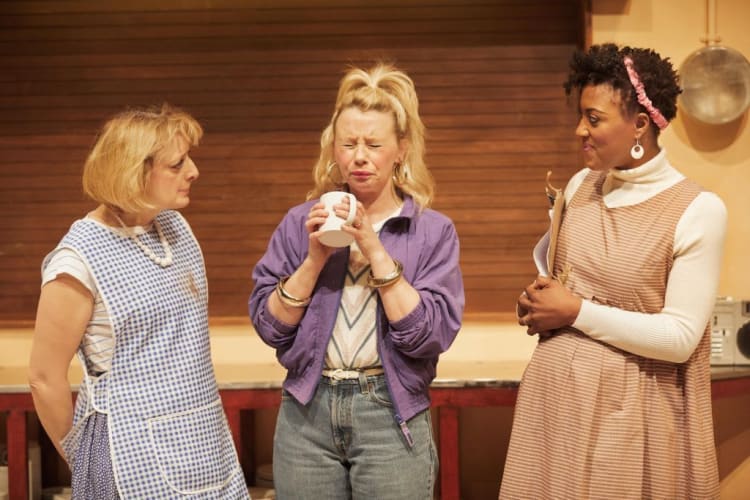Writers Ray Castleton and Kieran Knowles have written a play that is close to the hearts of people living in Sheffield as it is to mining communities throughout the country whose memory of the brutality and injustice of the Orgeave miners’ strike is still fresh.
In a programme note, Castleton tells us that each new generation needs to be reminded of events in our industrial and political history and "whilst we don’t live in the past, we would be foolish to deny that we don’t live with it".
This, in essence, is what the play is about. Events in 1984/5 explored through the experience of the women who ran the soup kitchens and organised food banks when miners’ families were going hungry and the lasting effect this had on individual women’s lives. The play hones in on three significant events over a period of 40 years when community support provided by the women was important: the miners’ strike of 1984/85, the Queen’s Golden Jubilee of 2002 and the Brexit referendum of 2016.
We follow the experience of five women who work in the kitchen of a Miners’ Welfare and Community Hall. Initially, this is a breakthrough for women who have never been politically active but who discover identity and friendship through activism and solidarity. Not without cost!
While Jo (Judy Flynn) is the well-grounded organiser, it is the more explosive Chris (Samantha Power) whose deep resentment of her brother’s ‘betrayal’ of the cause leads to a bitter alienation which outlives his lifetime. Jen (Simone Saunders), a black member of the community whose apolitical husband is injured and arrested during the fighting, is drawn out of seclusion and becomes a valued member of the women’s community.
The younger generation is represented by Jen’s bolshie teenage daughter Katie (Remmie Milner) who develops in the course of the action into a mature and committed member of the group.
An alternative voice is provided by Chris’s sister-in-law Helen (Jo Hartley) who is more concerned to heal family wounds than to engage with the larger issues.
There is nothing easy or simplistic about the presentation of these women; they are complex and well-rounded characters who argue and passionately disagree with one another and are certainly not tokenistic ‘types’.
There are strong, well differentiated performances from each member of the cast with Samantha Power particularly well served by convincing and authentic writing which gives her scope for a compelling and dynamic presentation of her role. The language throughout the play is believably local.
Sophia Simensky’s suitably shabby set with its flickering light and antiquated kitchen equipment is dominated in the early stages by cardboard boxes and the tins and packaged goods that go into them. Director Bryony Shanahan uses the opportunity to present an effective non-verbal sequence in which Chris’s silent anger and frustration is expressed by the way she slams the goods into the boxes. Action speaks louder than words.
This new play, commissioned by Sheffield’s Artistic Director Robert Hastie, is a welcome addition to the plethora of TV documentaries, films, novels, radio and theatre pieces written on the subject and deserves to reach a wide audience.
